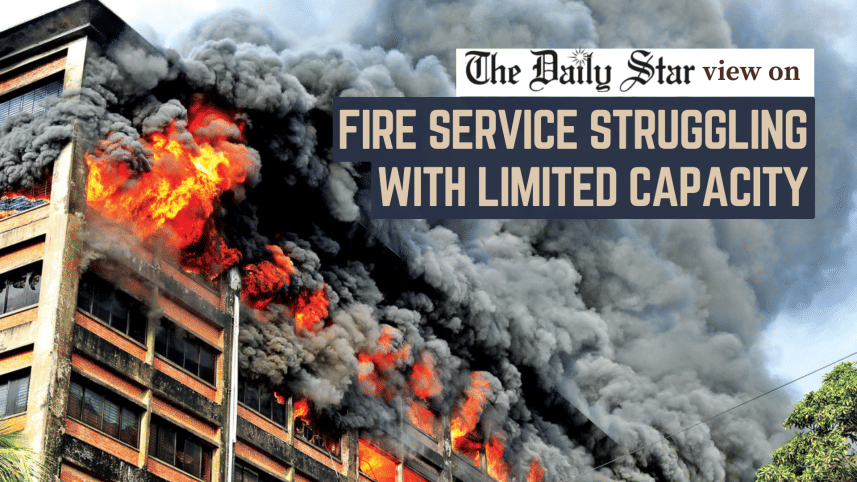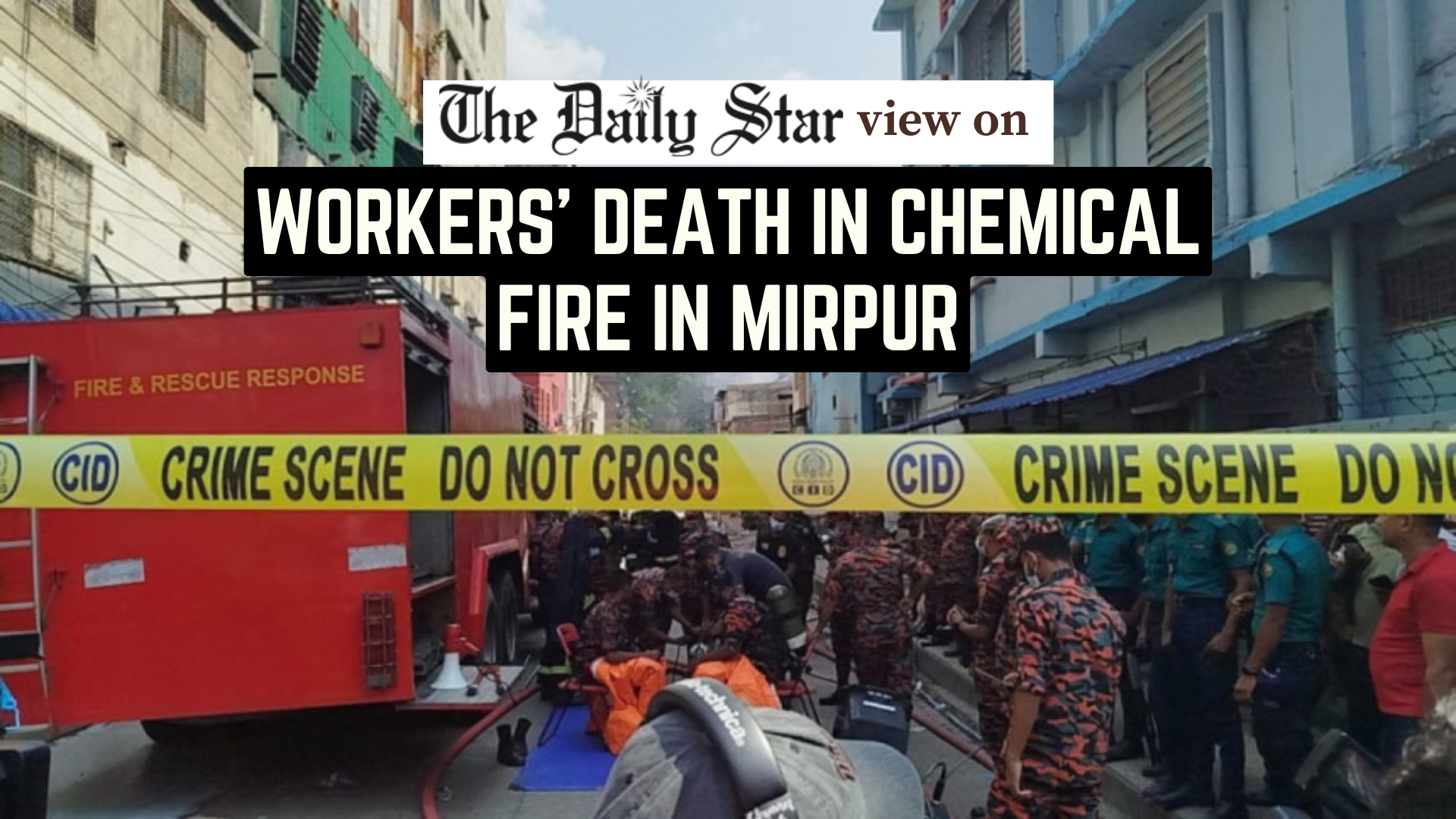Enhance the fire service's capacity

The fire service's poor performance in controlling the three recent major fires has once again exposed its limited capacity to respond to large-scale and chemical-related incidents. These fires—at Dhaka airport, the Chattogram Export Processing Zone, and a chemical warehouse in Mirpur—each burned for more than a day, taking between 24 and 27 hours to be brought under control. Reports indicate that the long time taken to douse the flames was due to a combination of factors, including inadequate fire safety measures, poor inter-agency coordination, and weak emergency response systems. Moreover, the poor response in these incidents revealed a critical shortage of essential tools and vehicles required to tackle fires involving hazardous chemicals.
While the absence of basic safety measures in the buildings, even in critical structures at Dhaka airport, made these operations difficult, weak preparedness and administrative complications reportedly also caused delays in the response. There were major weaknesses in the initial response, alarm systems, and water supply, all of which are essential components of effective fire management. Experts have also raised questions as to why it took so long to bring the fire under control in Dhaka Airport's cargo village, despite having its own fire service unit.
According to fire safety officials, the capacity required to deal with general fires and chemical fires differs significantly, and our firefighters have severe shortcomings in this regard. They have neither the tools nor the training required to tackle chemical fires effectively. They need specialised vehicles such as Hazmat tenders—emergency response vehicles designed to handle hazardous materials—for each divisional city and for stations located near land, river, and airport areas, along with other essential equipment. Moreover, our firefighters often have to work with minimal safety gear, risking their lives. The fire at a warehouse in Tongi's Sahara Market on September 22, in which three fire service officials lost their lives while tackling the blaze, revealed the critical need to ensure adequate safeguards and protection for firefighters.
All things considered, it is evident that our fire department urgently needs modernisation. The government must equip the fire service with necessary tools and training to tackle chemical fires effectively. It should also ensure that joint drills between the fire service and relevant agencies are conducted regularly. Moreover, KPI areas such as airports and EPZs should remain under constant surveillance for fire hazards. Last but not least, proper investigations into these fire incidents are essential to find other causes of response failure so that any loophole can be fixed.



 For all latest news, follow The Daily Star's Google News channel.
For all latest news, follow The Daily Star's Google News channel. 
Comments